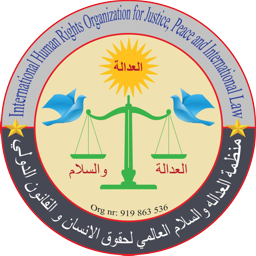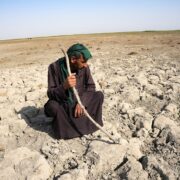Israel arbitrarily arrests unarmed civilians in degrading treatment
(Egypt، Theosis Across Borders)
Yesterday, Thursday, video clips and pictures spread in Israeli media and on social media platforms showing dozens of Palestinian prisoners in northern Gaza, handcuffed, blindfolded, and stripped of their clothes.
Some activists volunteered to explain the video, which shows a group of naked people being transported in a military vehicle, that they are some Hamas fighters who have surrendered themselves to the Israeli authorities, and that the Israeli authorities are stripping them of their clothes to ensure that there are no suicide bombers with explosive belts hidden inside them.
While others volunteered to liken them to Christ at the time of the crucifixion, or to the Coptic martyrs in Libya before their execution by ISIS.
Today, Friday, the Israeli army held a press conference to make statements about these photos, in which Daniel Hagari, spokesman for the Israeli army, said that the army was investigating whether these detainees were related to the Hamas movement, confirming his reports to official media.
He said in text:
“Jabalia and Shuja’iya are centers of gravity for terrorists and we are fighting them. They hide underground and come out and we are fighting them. Those who remain in those areas emerge from the openings of the tunnels, and some of them from the buildings.”
(Daniel Hagari, IDF spokesman)
وتابع:
“We are investigating who is linked to Hamas and who is not. We arrest them all and interrogate them.”
(Daniel Hagari, IDF spokesman)
It is an explicit acknowledgment of the random arrest of unarmed civilians, taking them in degrading treatment without security justification, and putting them on military trial by an “occupying army” and not their natural judge, without any guarantees of integrity, and in a way that reminds us of the concentration camps for the Jews themselves in the Holocaust, amid frequent reports of theft. The bodies of dead Palestinians/victims, some of them claiming to steal organs (published in Al-Masry Al-Youm newspaper, Egypt), and news stories about “skinning” (published in Al-Youm Al-Sabea newspaper, Egypt) in a way that puts the Israeli army in the position of: a contemporary Nazi!
Please cooperate in documenting such photos, videos, and news, and sending them to human rights non-governmental organizations. The matter has become a matter of Israel violating international agreements at the United Nations, and public or journalistic pressure is not enough. Rather, there must be international pressure that takes its legitimate channels through reports submitted by anti-torture activists and human rights activists.
Climate change and pollution threaten Iraq’s ancient marshes
Jassim Al-Asadi was born in a boat in the marshes of southern Iraq. Sixty-six years after his birth, his life still revolves around the marshes, and today he is an environmental activist and water resources engineer fighting to save the marshes from extinction.
“These spaces used to be green pastures and cane fields, but today the place has completely dried up,” Al-Asadi said, as he walked in the sweltering heat through a landscape of cracked barren land. “There you see a house where a buffalo breeder used to live, but he abandoned it and moved nearby.” From the Euphrates River. There are no pastures for buffalo anymore.”
The Marsh Arabs, an indigenous population of Iraq’s wetlands, have fished and grown crops on these lands for 5,000 years. They also raised water buffalo and built reed houses on floating islands where the Tigris and Euphrates rivers meet before flowing into the Gulf. .
But climate change, water pollution, oil exploration and upstream dam construction threaten the survival of this delicate ecosystem and its ancient Mesopotamian culture, some of which dates back to the Sumerians.
Al-Asadi is the head of Nature Iraq, a leading group in the field of environmental conservation. He confirmed that the drought wave is entering its fourth year today and has turned vast areas of wetlands and thriving agricultural lands into desert lands. Salinity is also rising in the shrinking canals and waterways, killing fish and making buffalo sick.
Al-Asadi worked for more than 30 years as an engineer in the Iraqi Ministry of Water Resources. “The environment is undergoing radical change,” he explained. “One of the causes is climate change and its impact on water levels in the Euphrates and Tigris in Iraq.”
When Al-Asadi was a child in the marshes, he saw hunters wandering among the reeds and buffalo bathing among the lush vegetation, but this image is rare today.
According to a report issued by the Food and Agriculture Organization of the United Nations and the Iraqi Ministry of Agriculture in July, the current drought is the worst in 40 years. The region’s rich wildlife, including many migratory birds, is at risk, and buffalo breeders and farmers are forced to migrate in precarious conditions to urban areas such as Basra, Najaf and Baghdad.
Haider Mohamed’s life depends on his flock. Although he lives next to a waterway near Chibayish in the central marshes, he must bring fresh water from elsewhere to feed the buffalo, which produce milk, meat and dung for fuel.
Mohammed, in his twenties, said: “The water here is salty and polluted. We used to have 70 buffalo, but only 20 survived. The rest died or were sold.” Far from the line of green reeds surrounding his house, the change is dramatic, with the swamps disappearing into dry, salty, deeply rugged land.
“Our lives depend on water”
Sheikh Lebanon Abdel Khayoun warned that a thousands-year-old way of life based on breeding, fishing and harvesting may disappear unless the necessary measures are taken immediately.
He said: “Our lives here depend mainly on water. If these swamps dry up, we will face a serious livelihood problem.” He sat, a beaded rosary in his hand, drinking tea inside a hostel, a traditional reed structure that serves as a meeting place for the Marsh Arabs, or ma’dan as they are known in Arabic.
“We are neither traders nor employees, and we have no other professions that provide us with income. The marshes are the profession of our fathers and grandfathers,” he continued, estimating that the livelihoods of between three and four million people depend on the marsh ecosystem.
The marshes are a UNESCO World Heritage Site thanks to their biological diversity and cultural value, but their contemporary history has faced many turmoil. Saddam Hussein drained the area by building trenches to expel rebels in the 1990s, reducing the water level by 90 percent. Tens of thousands also immigrated to the United States and Europe, but after the fall of the regime, the trenches were removed and water and metal returned.
Pollution and oil
The United Nations Environment Program has identified Iraq among the countries most vulnerable to climate change due to a combination of high temperatures, lack of rain, drought, water scarcity, and frequent sand and dust storms.
In addition to recurring droughts, pollution contributes to environmental deterioration in the region, as millions of cubic meters of industrial waste are dumped into the rivers and waterways that feed the marshes, according to environmentalists.
Activists assert that pollution resulting from fossil fuel projects in Basra Governorate, which contains most of Iraq’s vast oil and gas reserves, has reached alarming levels and is a prominent source of cancer, kidney failure, and other diseases.
Fadwa Tohme from the local non-governmental organization Ozone stressed, for her part, that “Basra is currently witnessing severe pollution in terms of water, soil and air, in addition to food pollution,” adding that extreme heat and desertification are fueling the climate catastrophe in the region.
She continued, saying: “There were 30 million palm trees in Basra, but today there are less than a million palm trees. In the past, green cover covered the desert, but today there is no shield against the evil of wind and dust.”
During a visit by the United Nations High Commissioner for Human Rights, Volker Türk, to southern Iraq last August, he stressed that the country is experiencing a climate emergency and the world must confront this era of boiling. In 50 degrees Celsius heat, Turk visited an area that was once lush with palm trees but is now a dry, barren field.
What is happening today gives us a glimpse into a future that is now imminent in other regions of the world, if we continue to shirk our responsibility to take preventive measures to mitigate the effects of climate change.
United Nations High Commissioner for Human Rights Volker Türk
In an open letter ahead of COP28 in Dubai, United Arab Emirates, Türk urged negotiators to move away from short-sighted decisions and place human rights at the heart of climate action.
Regional cooperation
Al-Asadi, who participated in several water management projects to achieve a balance between the environment, agriculture, and marsh restoration, stressed that the problem of water scarcity extends beyond Iraq’s borders and called for adopting a regional solution.
He blamed neighboring Turkey and Iran for building dams upstream with little regard to international treaties. Al-Asadi said that as the water crisis worsens due to climate change, the countries of the Tigris and Euphrates Basin must cooperate to implement human rights to water and development and put aside rivalries.
In Iraq, OHCHR supports the efforts of civil society groups and human rights defenders for safe access to water for all and for sustainable and equitable use of water.
Al-Asadi said that the struggle for human rights and the marshes is worth it despite the dangers looming in the air, as environmental activists in Iraq regularly face threats, harassment, and arbitrary detention. Earlier this year, an unidentified armed group kidnapped and beat Al-Asadi, then released him two weeks later.
He concluded by saying: “The marshes are not only a component of the environment and economy, but they also constitute a unique culture.”
Palestine calls on United Nations to provide international protection for the people and their children
Today, Monday, the Palestinian Minister of Foreign Affairs and Expatriates, Riyad Al-Maliki, sent letters to the Secretary-General of the United Nations, Antonio Guterres, and the Special Representative of the Secretary-General for Children and Armed Conflict, Virginia Gamba, regarding Israel’s violations against Palestinian children.
In his message on the occasion of International Children’s Rights Day, which falls on November 20 of each year, Al-Maliki called for the necessity of immediately stopping the barbaric aggression against the Gaza Strip, bringing humanitarian aid into the Strip, stopping forced displacement, and providing the necessary legal protection for all the Palestinian people, specifically children.
He urged the international community, especially the Security Council, to fulfill its obligations and take the necessary measures to ensure the protection of the Palestinian people, including children in particular, and not to exclude them from international protection, and to take the necessary measures to hold Israel (the occupying power) accountable for its crimes and the necessity of including Israel, its army and its colonizers in The United Nations “List of Shame” of those who violate children’s rights in armed conflicts.
The Palestinian Foreign Ministry confirmed that since the beginning of the Israeli aggression and the war of extermination waged by Israel on the Gaza Strip, more than 13,000 martyrs have occurred, including about 5,000 children, pointing out that the occupation’s systematic and widespread attacks did not stop only in the Gaza Strip, but rather extended to the killing of 215 Palestinians in Various parts of the West Bank, including Jerusalem, including 53 children, bringing the number of Palestinian children killed in cold blood in the West Bank since the beginning of this year to 96 children, in addition to 200 children who are currently arbitrarily detained in the illegal Israeli occupation prisons, in inhumane conditions.
United Nations: 10,000 people fled from northern to southern Gaza yesterday, Saturday
Geneva
The United Nations Office for the Coordination of Humanitarian Affairs said that about ten thousand people fled from the northern Gaza Strip to the south yesterday, Saturday.
The office added on Sunday that this figure is based on estimates by United Nations observers on the ground, noting that among those fleeing are minors without their parents.
The citizens of Gaza were following the instructions of the Israeli Defense Forces, which more than once asked civilians to leave the northern part of the Strip.
Israel says Hamas maintains command centers and rocket launching bases in hospitals, schools and residential buildings in the north.
The United Nations office said that the refugees described having to pass through Israeli checkpoints equipped with facial recognition machines, noting that Israel fears the presence of known terrorists among the refugees.
Unconfirmed reports indicated that some people were detained at checkpoints.








